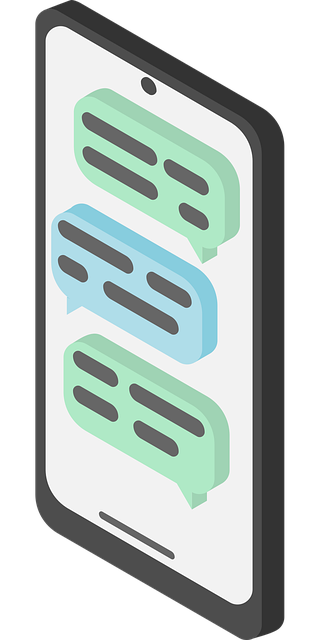Phone fraud and spam calls pose significant challenges in South Carolina, affecting businesses and consumers. The Telemarketing Consumer Protection Act (TCPA) offers legal protections, but proactive measures are essential to defend against these issues. Businesses can reduce risks by employing anti-spam strategies like caller ID blocking, automated screening tools, and employee training. Consulting a reputable spam call law firm or lawyers specializing in spam calls is recommended for navigating TCPA compliance and stopping sophisticated scams. South Carolina residents and businesses should stay informed, look for suspicious patterns, and engage legal professionals to enforce the TCPA and protect against phone fraud.
In today’s digital age, e-commerce businesses in South Carolina face an escalating threat from phone fraud and spam calls. Understanding the intricate web of scams and leveraging legal protections like the Telephone Consumer Protection Act (TCPA) is crucial for survival. This article guides you through effective defense mechanisms to stop spam calls South Carolina, featuring insights on identifying common scam strategies, selecting the right legal support with spam call lawyers in South Carolina, and navigating the TCPA landscape. Discover how to fortify your business against these persistent threats.
Understanding Phone Fraud and Spam Calls in South Carolina
Phone fraud and spam calls are persistent issues in South Carolina, impacting countless businesses and consumers. Spam calls can range from unwanted marketing messages to fraudulent attempts, often disguised as legitimate communications. In South Carolina, these practices may violate the Telemarketing Consumer Protection Act (TCPA), a federal law designed to curb abusive telemarketing tactics. Understanding the scope of phone fraud is the first step in protecting your e-commerce business.
Business owners should be aware that spam calls can lead to significant legal consequences and financial losses. A reputable spam call law firm South Carolina or spam call lawyers South Carolina can guide you through navigating the TCPA South Carolina. By implementing robust anti-spam measures, such as caller ID blocking, automated screening tools, and employee training on identification of suspicious calls, businesses can significantly reduce their exposure to phone fraud.
Identifying Common Strategies Used by Scammers
Scammers often employ sophisticated strategies to target e-commerce businesses in South Carolina through phone fraud. One common tactic is using automated dialers to make a high volume of spam calls, aiming to overwhelm your customer service lines and potentially compromise security protocols. These calls may attempt to gather sensitive information or lure victims into providing credit card details under false pretenses.
Identifying these fraudulent activities requires staying informed about the latest trends in scamming techniques. Keep an eye out for suspicious patterns, such as calls from blocked or unknown numbers, repeated attempts from the same caller, or requests for urgent actions during the conversation. Engaging a Spam Call law firm in South Carolina and consulting with lawyers specialized in TCPA (Telecommunications Consumer Protection Act) compliance can help you navigate legal protections and implement effective countermeasures to stop spam calls effectively.
Legal Framework: The Telephone Consumer Protection Act (TCPA) in SC
In South Carolina, the Telephone Consumer Protection Act (TCPA) plays a crucial role in curbing phone fraud and spam calls. This federal law, enacted to protect consumers from unwanted telemarketing practices, is strictly enforced within the state. The TCPA prohibits businesses from making or initiating any telephone call using an automatic dialing system or prerecorded message without prior express consent from the recipient.
South Carolina residents have the right to seek legal action against companies that violate this law. If you’re experiencing a surge in spam calls or believe your business has been targeted, consulting with a reputable spam call lawyer South Carolina is essential. Such legal professionals can guide you on how to stop spam calls SC and help enforce the TCPA, ensuring your business remains protected under the state’s stringent anti-fraud regulations.
Implementing Effective Defense Mechanisms for Your E-commerce Business
Implementing effective defense mechanisms is crucial in safeguarding your e-commerce business from phone fraud and spam calls in South Carolina. Start by integrating robust call filtering and blocking systems to weed out unwanted incoming calls. These tools can automatically detect and block spam calls, significantly reducing the risk of unauthorized access and fraudulent activities. Regularly update your customer contact lists, ensuring only legitimate numbers are on file to minimize false positives.
Additionally, educate your staff about recognizing and responding to suspicious phone interactions. Train them to verify caller IDs, hang up if a call seems dubious, and report any unusual activity to the appropriate department. Consider hiring legal counsel specializing in TCPA (Telecommunications Consumer Protection Act) compliance to audit your practices and provide guidance on staying within regulatory boundaries. Such proactive measures will create layers of defense, making it harder for spam callers to target your business.
Selecting the Right Legal Support: Spam Call Lawyers in South Carolina
When it comes to protecting your e-commerce business from phone fraud in Columbia, selecting the right legal support is paramount. In South Carolina, spam call laws are stringent, governed by the Telephone Consumer Protection Act (TCPA), making it crucial to engage a specialized law firm with expertise in this area. A reputable spam call lawyer in South Carolina can help you navigate these complex regulations and implement effective strategies to stop spam calls.
Choosing the right legal counsel ensures that your business complies with local laws, mitigates potential fines, and establishes a robust defense against abusive phone marketing practices. With their knowledge of TCPA, these lawyers can guide you on how to stop spam calls in South Carolina, offering tailored solutions and representation should any issues arise.






